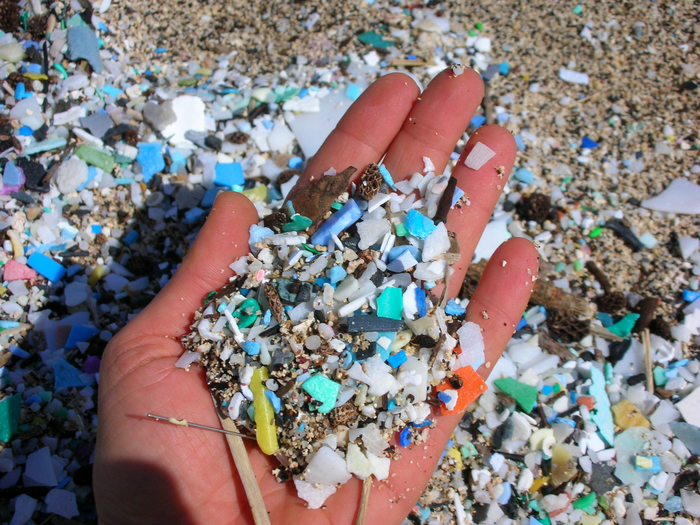A global dataset of ocean plastic pollution between 1979 and 2019 reveals a rapid and unprecedented increase in ocean plastics since 2005, according to a study published March 8, 2023 in the open-access journal PLOS ONE by Marcus Eriksen from The 5 Gyres Institute, USA, and colleagues.

Credit: The 5 Gyres Institute, CC-BY 4.0 (https://creativecommons.org/licenses/by/4.0/)
A global dataset of ocean plastic pollution between 1979 and 2019 reveals a rapid and unprecedented increase in ocean plastics since 2005, according to a study published March 8, 2023 in the open-access journal PLOS ONE by Marcus Eriksen from The 5 Gyres Institute, USA, and colleagues.
Understanding plastic accumulation in the oceans to date could provide a critical baseline to help address this form of pollution. Previous studies have focused primarily on northern-hemisphere oceans near the world’s most industrialized nations, while other studies have found increases in ocean plastic over shorter time periods.
In this study, Eriksen and colleagues looked at data on ocean-surface-level plastic pollution collected between 1979-2019 from 11,777 stations across six marine regions (North Atlantic, South Atlantic, North Pacific, South Pacific, Indian, and Mediterranean).
After accounting for wind, site selection, and biases due to under-sampling, the authors’ model showed a significant and rapid increase since 2005 of the global ocean abundance and distribution of plastics in the ocean surface layer. An estimated 82-358 trillion plastic particles (mean = 171 trillion plastic particles, primarily microplastics), weighing between 1.1-4.9 million tons (mean = 2.3 million tons) were afloat in 2019. A relative lack of data from 1979-1990 prevented trend analysis during this period, while between 1990 and 2004 plastic levels showed fluctuations with no clear trend.
Though these results are biased towards trends in the North Pacific and North Atlantic, where the majority of the data was collected, Eriksen and coauthors suggest the rapid increase from 2005 reflects the global growth of plastic production, or changes in waste generation and management. Without widespread policy changes, the researchers predict the rate at which plastics enter our waters will increase approximately 2.6 times by 2040. They call for urgent legally binding international policy intervention to minimize the ecological, social, and economic harm of aquatic plastic pollution.
Marcus Eriksen, co-founder and researcher from The 5 Gyres Institute, adds: “We’ve found an alarming trend of exponential growth of microplastics in the global ocean since the millennium, reaching over 170 trillion plastic particles. This is a stark warning that we must act now at a global scale. We need a strong, legally binding UN Global Treaty on plastic pollution that stops the problem at the source.”
#####
In your coverage please use this URL to provide access to the freely available article in PLOS ONE: https://journals.plos.org/plosone/article?id=10.1371/journal.pone.0281596
Citation: Eriksen M, Cowger W, Erdle LM, Coffin S, Villarrubia-Gómez P, Moore CJ, et al. (2023) A growing plastic smog, now estimated to be over 170 trillion plastic particles afloat in the world’s oceans—Urgent solutions required. PLoS ONE 18(3): e0281596. https://doi.org/10.1371/journal.pone.0281596
Author Countries: USA, Sweden, Chile, Australia
Funding: ME received funding from the Baum Foundation to support expeditions and sample collection (http://thebaumfoundation.org/). MT was supported by the European Union’s H2020 research and innovation programme MINKE project (under Grant Agreement No 101008724). These funders had no role in study design, data collection and analysis, decision to publish, or preparation of the manuscript.
Journal
PLoS ONE
DOI
10.1371/journal.pone.0281596
Method of Research
Computational simulation/modeling
Subject of Research
Not applicable
Article Title
A growing plastic smog, now estimated to be over 170 trillion plastic particles afloat in the world’s oceans—Urgent solutions required
Article Publication Date
8-Mar-2023
COI Statement
The authors have declared that no competing interests exist.




